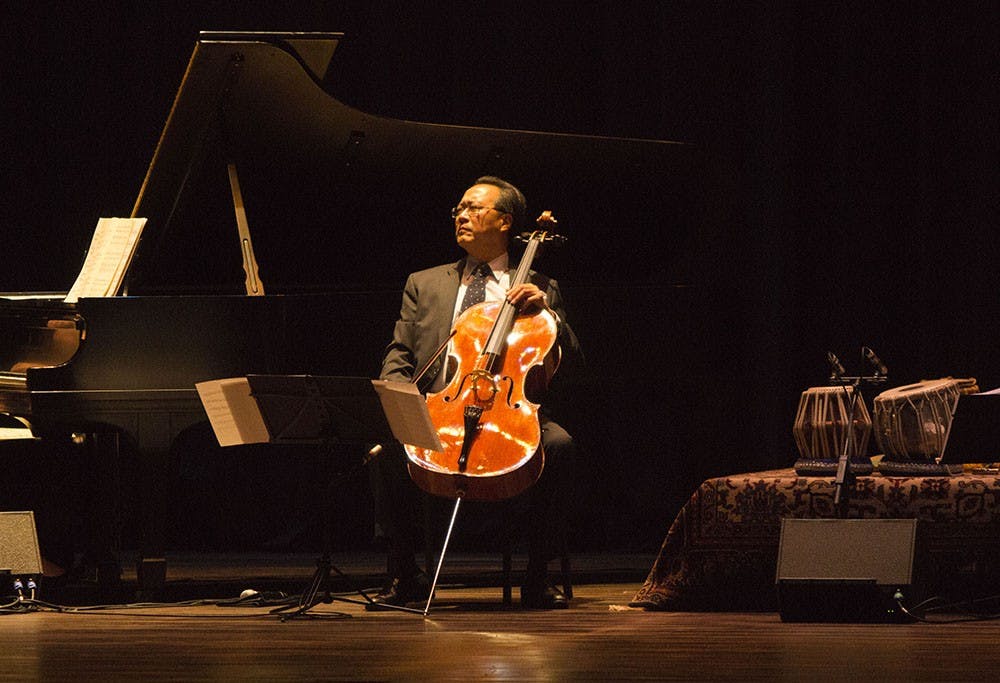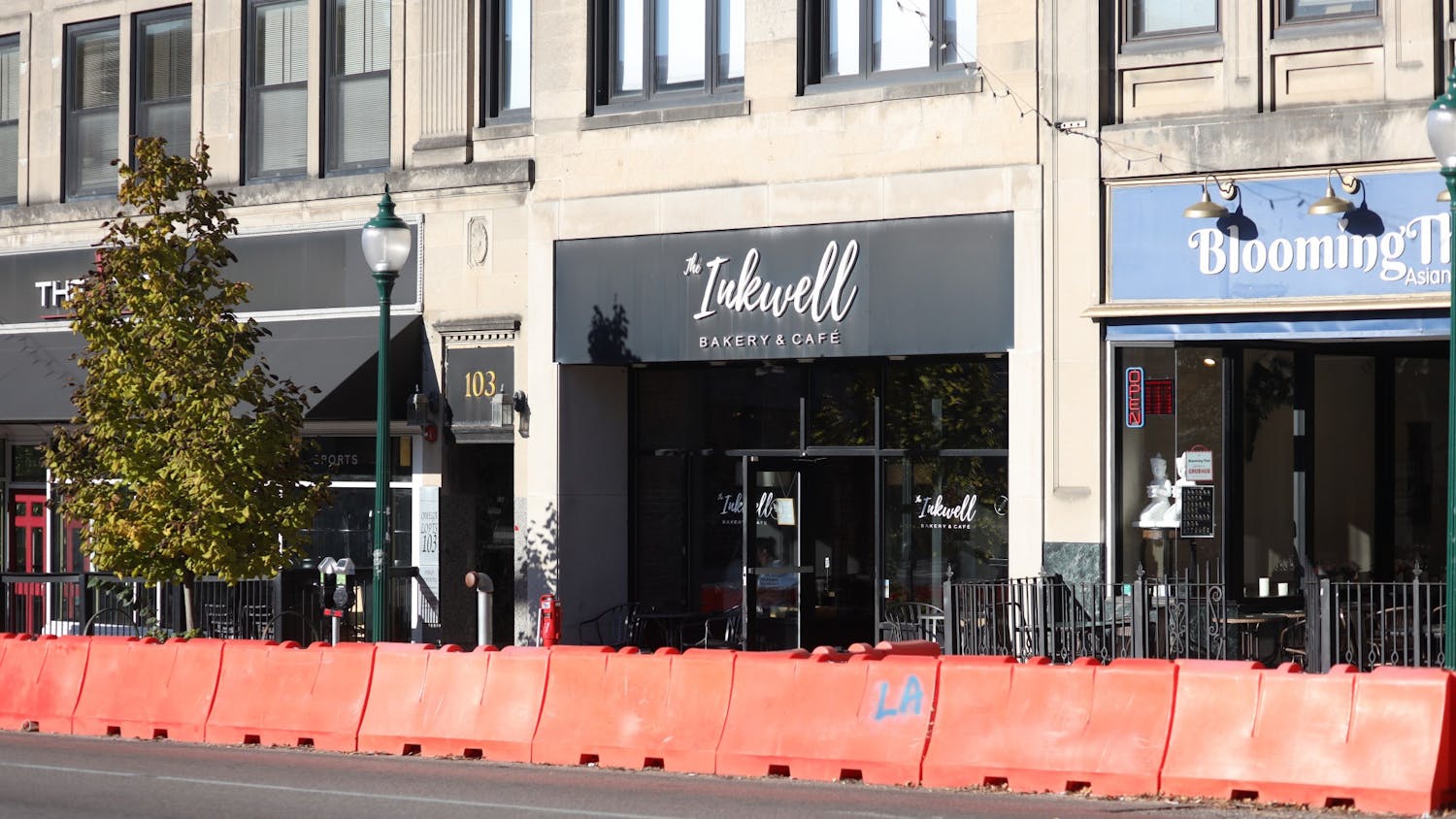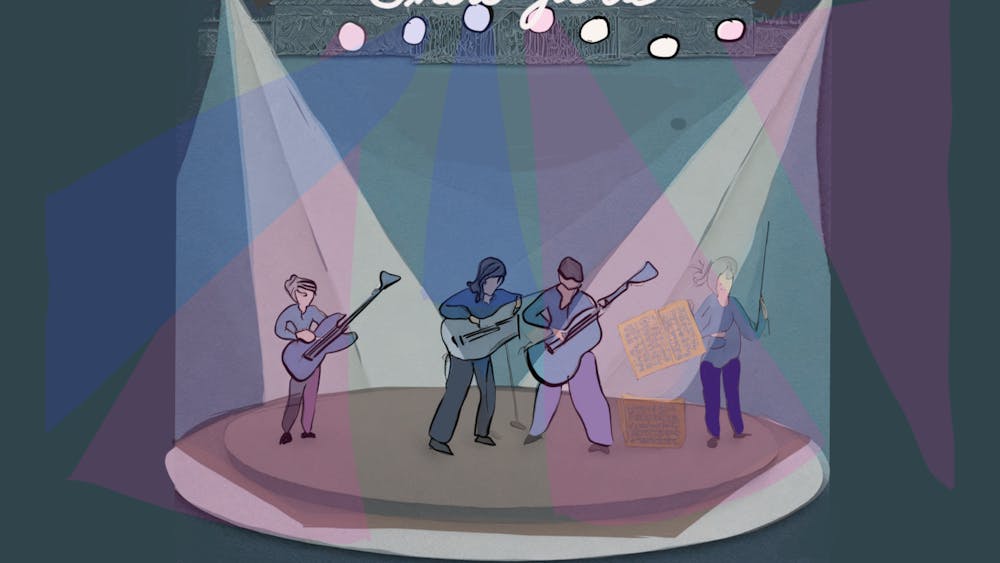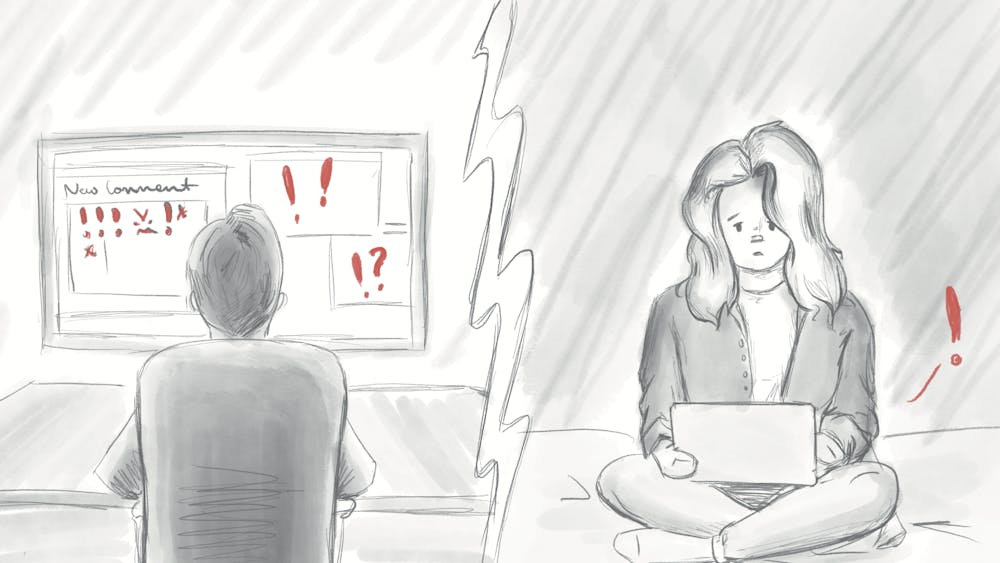Born in France, Ma began playing on the world stage at the age of 5 in 1961. He founded the Silkroad Ensemble in 2000, and from this collaboration between artists from more than 20 different countries came the BRIC project.
“BRIC is the political and economic coalition of the new markets, economies and powerhouses of Brazil, Russia, India and China,” said Lee Feinstein, dean of the School of Global and International Studies.
Joining Ma onstage during Wednesday’s performance were British pianist Kathryn Stott, Russian and Israeli violinist Johnny Gandelsman, Brazilian guitarists and brothers Sergio and Odair Assad, Chinese sheng and bawu player Wu Tong, and Indian “talking drums” or tabla player Sandeep Das.
“These musicians are my dear friends and part of my musical family,” Ma said Wednesday morning during a presentation at the School of Global and International Studies. “I think of our appearance onstage not only as a performance with wonderful colleagues, but also as a family reunion.”
The show started with Ma and Stott onstage, and more members were added until all of the ensemble shared the spotlight together. They played as old friends, encouraging each other with shared glances and smiles.
Das was the only player wearing bright red instead of black, cross-legged on his own raised platform, his fingers fluttering over the drums, evoking heavy bass beats with his palms. The Assad brothers, who recently concluded their 50th anniversary tour, bobbed their heads and tapped their feet in unison.
Wu Tong played the sheng, an instrument that has a 5,000-year-old history as an ancestor of the church organ. Ma sat in the middle.
“After almost every concert I play, a child will come backstage to me and say, ‘When I grow up, I want to be a musician,’” Ma said. “Every time, I shake my head and say, ‘I’m sorry my friend, you can’t do both.’ To me, at the heart of childhood is wonder. I believe that the world can be magical. This wonder is essential to being a musician, you need the same kind of unfettered imagination.”
All other aspects of culture require this as well, Ma said. The courage to be vulnerable and the capacity for wonder led to discovery and innovation. Ma said society needs to encourage openness, because it gives us hope, creativity and better solutions to problems.
“The secret to music and culture is they are always about something bigger than ourselves,” Ma said. “It’s not given to us, we have to discover it. When we listen, when we watch, when we participate, we become part of that experience. We discover something at its core: our shared meaning defined through our collective imagination. As musicians, it’s our job to guide that process.”
Ma said the key to combining and performing music from different cultures is to understand the elements that make a piece unique to its origins. Gandelsman said what makes one of the pieces from the show sound Russian is the slight displacement of the eighth note melody.
“Taken together, wonder, openness and empathy are an incredibly powerful effect of culture,” Ma said. “They are an antidote to fear and darkness.”
Ma said he was afraid as a child moving from France to America and having to learn a new language and customs. He said music and culture made him understand that the right response to change is curiosity, empathy and connection.
“Culture expresses who we are at our core,” he said. “It teaches us to find meaning, to share it with others and to hear what others are sharing with us. It teaches us to revel in that process. Culture matters for life’s sake.”






